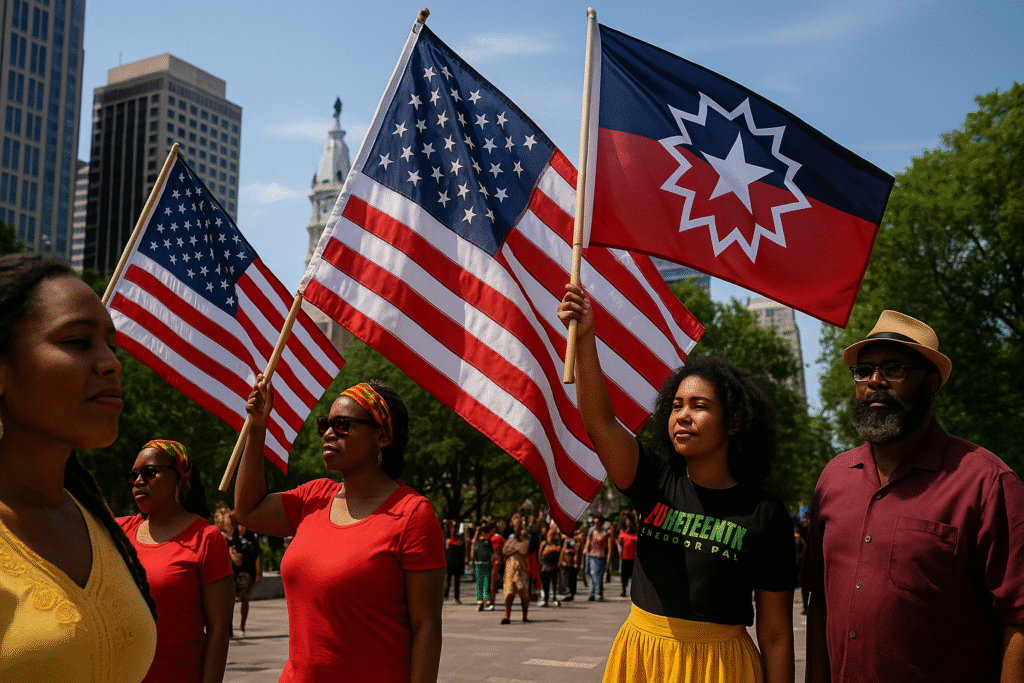From coast to coast, Americans commemorated Juneteenth, the federal holiday marking the end of slavery in the United States, with a blend of celebration and reflection. In cities across the country—including Atlanta, New York, Peoria, and Galveston—parades, poetry readings, musical performances, and community festivals honored a pivotal moment in American history.
What Is Juneteenth?
Juneteenth, also known as Freedom Day, commemorates June 19, 1865, when Major General Gordon Granger arrived in Galveston Bay, Texas, with 2,000 Union troops and announced that the more than 250,000 enslaved Black people in the state were free. This declaration came more than two years after President Abraham Lincoln signed the Emancipation Proclamation.
In 2021, President Joe Biden signed the Juneteenth National Independence Day Act, making Juneteenth a federal holiday. The move recognized a celebration long observed by Black communities and opened the door for broader national acknowledgment of the significance of this historic day.
Celebrations Nationwide
Events across the United States were marked by cultural pride, remembrance, and community solidarity.
- Peoria, Illinois hosted a vibrant festival featuring a parade, poetry, food, music, and a bake-off.
- In Worcester, Massachusetts, the YWCA held a flag-raising ceremony and spoke of preserving tradition in the face of continued cultural and historical challenges.
“This is something to acknowledge and honor our ancestors,” said Sha-Asia Medina of the Black Heritage Committee. “But the attack on our history and culture continues. This Juneteenth is important, especially given the time we’re in.”
Other communities—like Savannah, Concord, Galveston, and New York City—held memorial events, educational programming, reenactments, and family-friendly gatherings, ensuring the stories behind Juneteenth remain visible and impactful.
A Moment to Reflect on the Promise of Freedom
Juneteenth represents a point when the ideals expressed in the Declaration of Independence—freedom, equality, and justice—moved closer to becoming a reality for all Americans. For many, it is a day of celebration. For others, it is a time to reflect on the continuing struggle for racial equity and to honor the legacy of those who fought for liberation.
“This is American history,” one event organizer said. “Not just Black history. It’s a day that marks a turning point for the whole country.”
As Juneteenth continues to gain recognition nationwide, its message remains both historical and timely: that freedom delayed is still freedom denied—and remembering our past is essential to building a more just future.
